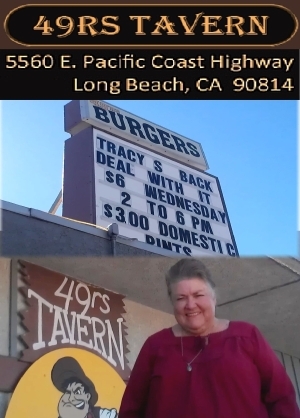[Scroll down for further.]

| (March 7, 2017) -- In response to the CA Supreme Court's historic ruling (coverage by LBREPORT.com here) that city officials can no longer use their personal/commercial email accounts to avoid public (and press) access their communications on the public's business within the scope of the CA Public Records Act, the Long Beach City Attorney's office has sent LB's Mayor and City Councilmembers a [Scroll down for further.] |
 |
[City Att'y Parkin / Ass't City Att'y Mais memo text]
The City Attorney's office made the full text of its memo to the Mayor/Council publicly available through a release on its website at this link. To read the CA Supreme Court's full opinion, click here.
Among those supporting Public Records Act access were the CA Newspaper Publishers Ass'n, McClatchy Newspapers, CA Broadcasters Ass'n, L.A. Times Communications, plus Friend of the Court briefs from the Electronic Frontier Foundation and ACLU of CA. The "League of CA Cities," a privately run advocacy entity to which the City of Long Beach pays dues, submitted a brief opposed to allowing Public Records Act access. The issue reached the CA Supreme Court when San Jose resident Ted Smith sought records under the CA Public Records Act about a downtown development project funded partly by the City, and included in his request records on the commercial email accounts of San Jose's Mayor and Councilmembers. San Jose City Hall refused to provide the records; Mr. Smith sued; a trial court sided with Smith; an appeals court reversed...and the CA Supreme Court sided with Mr. Smith and in the process broadened access to public records statewide. In its unanimous opinion, the state's High Court ruled, "[W]e conclude a city employee's communications related to the conduct of public business do not cease to be public records just because they were sent or received using a personal account. Sound public policy supports this result." The Court stated: "The whole purpose of CPRA is to ensure transparency in government activities. If public officials could evade the law simply by clicking into a different email account, or communicating through a personal device, sensitive information could routinely evade public scrutiny."
LB's Mayor and City Council members, who have agendized and voted to take positions in other ongoing litigation with "Friend of the Court" briefs, didn't do so in the Public Records Act lawsuit...and in April 2013, the Council blocked an effort by one of its members to discuss in a Council committee making their communications on public business disclosable public records when using private email channels. Seven then-Long Beach Councilmembers -- then-Vice Mayor/now-Mayor Robert Garcia, plus Councilmembers Suja Lowenthal, Gary DeLong, Patrick O'Donnell, James Johnson, Al Austin and Steve Neal [Dee Andrews absent] -- sat silently and refused to second a motion by then-Councilwoman Gerrie Schipske to send to the Council's Elections Oversight Committee (at that time comprised of O'Donnell, Lowenthal, Andrews.) Councilwoman Schipske's agendized item proposed to require elected officials to disclose non-public communications about public business and included banning political contributions from contractors and those having business before the City Council and disclosing any communications being received during Council meetings from lobbyists. Her motion died for lack of a second.
The state legislature could have plugged the Public Records Act loophole (which the City Council didn't advocate in its annual state legislative agenda) but neither Dem nor Repub legislative leadership pursued the issue. Over a period spanning several years, LBREPORT.com repeatedly urged editorially that the City Council require forwarding emails and other communications on the public business through personal/commercial email accounts to City's .gov accounts, which would automatically make them public records more easily searched and disclosable. (Councilwoman Schipske said she routinely did so.) The City Attorney's memo (above) says that in light of the CA Supreme Court decision, this would be good practice.
blog comments powered by Disqus Recommend LBREPORT.com to your Facebook friends:
Follow LBReport.com with:
Contact us: mail@LBReport.com |
     
 Hardwood Floor Specialists Call (562) 422-2800 or (714) 836-7050  |